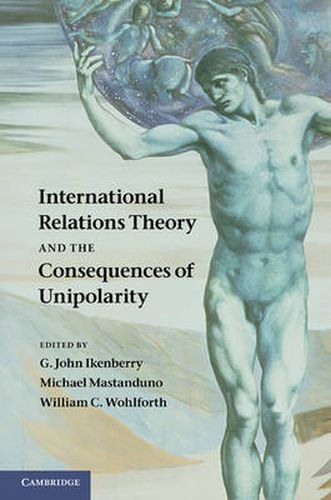Readings Newsletter
Become a Readings Member to make your shopping experience even easier.
Sign in or sign up for free!
You’re not far away from qualifying for FREE standard shipping within Australia
You’ve qualified for FREE standard shipping within Australia
The cart is loading…






The end of the Cold War and subsequent dissolution of the Soviet Union resulted in a new unipolar international system that presented fresh challenges to international relations theory. Since the Enlightenment, scholars have speculated that patterns of cooperation and conflict might be systematically related to the manner in which power is distributed among states. Most of what we know about this relationship, however, is based on European experiences between the seventeenth and twentieth centuries, when five or more powerful states dominated international relations, and the latter twentieth century, when two superpowers did so. Building on a highly successful special issue of the leading journal World Politics, this book seeks to determine whether what we think we know about power and patterns of state behaviour applies to the current ‘unipolar’ setting and, if not, how core theoretical propositions about interstate interactions need to be revised.
$9.00 standard shipping within Australia
FREE standard shipping within Australia for orders over $100.00
Express & International shipping calculated at checkout
The end of the Cold War and subsequent dissolution of the Soviet Union resulted in a new unipolar international system that presented fresh challenges to international relations theory. Since the Enlightenment, scholars have speculated that patterns of cooperation and conflict might be systematically related to the manner in which power is distributed among states. Most of what we know about this relationship, however, is based on European experiences between the seventeenth and twentieth centuries, when five or more powerful states dominated international relations, and the latter twentieth century, when two superpowers did so. Building on a highly successful special issue of the leading journal World Politics, this book seeks to determine whether what we think we know about power and patterns of state behaviour applies to the current ‘unipolar’ setting and, if not, how core theoretical propositions about interstate interactions need to be revised.